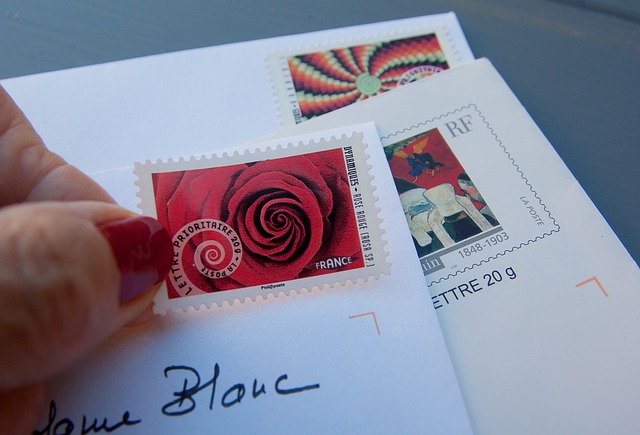The UK faces significant barriers to inclusivity in accessing cultural essays and analyses due to language challenges, digital accessibility issues, and socio-economic disparities. Professional translation services are vital to overcoming these hurdles, ensuring content is accessible to a diverse range of audiences. By implementing ethical practices, collaboration with communities, educational initiatives, and policy interventions, the UK can foster a deeper appreciation for its cultural tapestry, creating an inclusive society that values diversity. UK Cultural Essays and Analyses Translation Services play a central role in this endeavor by breaking language barriers and democratizing access to cultural knowledge.
In today’s diverse society, ensuring accessibility to cultural content is paramount for fostering inclusivity within the UK. This article explores various facets of enhancing cultural participation by addressing barriers that currently exist in access to UK cultural essays and analyses. We delve into the transformative power of translation services, digital solutions, and educational initiatives aimed at promoting a more inclusive cultural landscape. By examining successful models, this piece highlights strategies to preserve cultural integrity while empowering local communities through collaboration and policy support.
- Understanding the Current Landscape: Barriers to Cultural Content Access in the UK
- The Role of Translation Services in Promoting Inclusivity
- Making Cultural Essays Accessible: A Comprehensive Approach
- Digital Solutions: Online Platforms and Their Impact on Cultural Consumption
- Overcoming Language Barriers: Strategies for Effective Translation
- Preserving Cultural Integrity: Ethical Considerations in Translation
- Collaboration with Local Communities: Empowering Voice and Participation
- Educational Initiatives: Incorporating Accessibility into Curricula
- Policy and Funding Opportunities: Supporting Inclusive Cultural Practices
- Case Studies: Successful Models of Accessible Cultural Content Delivery
Understanding the Current Landscape: Barriers to Cultural Content Access in the UK

In the UK, access to cultural content faces several barriers that limit its accessibility for a diverse range of audiences. Despite the country’s rich cultural heritage and vibrant arts scene, disparities exist in how individuals can engage with and appreciate cultural offerings. One significant challenge is language; with a growing population of non-native English speakers, many cultural essays and analyses, as well as associated translation services, remain inaccessible to those who don’t fluently speak the language. This creates a divide, hindering minority groups from fully participating in cultural discussions and appreciating diverse artistic expressions.
Additionally, digital accessibility plays a crucial role in modern times. While much cultural content is now available online, technological barriers such as outdated websites, lack of alt text for visual elements, and limited closed captioning options prevent individuals with disabilities from accessing these resources. Furthermore, socio-economic factors contribute to the issue; lower-income households may struggle to afford internet access or devices, leading to a further gap in cultural participation. Overcoming these barriers is essential to ensure that UK Cultural Essays and Analyses are inclusive and available to all, fostering a deeper appreciation for the rich tapestry of cultural content on offer.
The Role of Translation Services in Promoting Inclusivity

In today’s diverse society, translation services play a pivotal role in enhancing accessibility to cultural content, especially within the UK cultural essays and analyses domain. By providing accurate and contextually sensitive interpretations, these services break down language barriers and enable a wider audience to engage with artistic expressions from around the globe. This inclusivity is paramount for fostering cross-cultural understanding and appreciation.
Translation goes beyond mere word-for-word substitution; it involves capturing the essence and nuances of one language in another. Professional translation services, particularly those specializing in cultural content, are adept at preserving the original intent, be it in literature, visual arts, or performance. This ensures that diverse voices and perspectives from different cultures can resonate with audiences across the UK, promoting a rich tapestry of shared experiences and insights.
Making Cultural Essays Accessible: A Comprehensive Approach

Ensuring accessibility is paramount when it comes to sharing cultural essays and analyses, especially in the UK where a diverse range of voices and perspectives need to be included. One effective strategy involves leveraging UK Cultural Essays and Analyses Translation Services. These services play a pivotal role in breaking down language barriers, making essential insights and knowledge accessible to a broader audience. By providing accurate and culturally sensitive translations, they enable non-native speakers to engage with these essays on equal footing.
A comprehensive approach should also consider the digital accessibility of these translated essays. This includes using accessible formats such as plain text, proper heading structures, and alternative text for images. Additionally, integrating tools like screen readers and keyboard navigation ensures that individuals with visual impairments or motor disabilities can access the content easily. Such inclusive practices not only democratize cultural knowledge but also reflect the UK’s commitment to fostering an inclusive society where everyone has the chance to appreciate and contribute to our rich cultural landscape.
Digital Solutions: Online Platforms and Their Impact on Cultural Consumption

In today’s digital era, online platforms have revolutionized the way people consume cultural content in the UK. These platforms offer a vast array of resources, making it easier for audiences to access and engage with diverse forms of art, literature, and history. From streaming services providing films and documentaries to dedicated websites showcasing visual arts and digital archives, these digital solutions have democratized cultural consumption. They break down geographical barriers, allowing individuals from all walks of life to explore and appreciate the rich tapestry of UK cultural essays and analyses.
Moreover, online platforms often incorporate translation services, ensuring that content is accessible to a broader, multilingual audience. This feature is particularly beneficial for promoting cross-cultural understanding and appreciation. By making cultural content more inclusive, these digital initiatives contribute to fostering a vibrant and diverse community where people from different backgrounds can share and learn from one another.
Overcoming Language Barriers: Strategies for Effective Translation

In today’s diverse cultural landscape, overcoming language barriers is paramount to enhancing accessibility to UK cultural essays and analyses. Translation services play a pivotal role in this endeavor by ensuring that content from various linguistic backgrounds reaches a broader audience. Professional translation goes beyond simple word-for-word substitution; it involves capturing the essence, nuances, and cultural context of the original text. This process demands skilled translators who not only command the source and target languages but also possess a deep understanding of the cultures they represent.
Effective translation strategies in the UK cultural sphere involve several key practices. First, contextual adaptation ensures that translated texts resonate with local audiences by adjusting references, idioms, and metaphors to be culturally relevant. Second, the use of native language experts guarantees accuracy and fluency, enhancing reader engagement. Additionally, employing advanced technology, such as machine translation tools coupled with human editing, can expedite the process while maintaining high-quality standards. These strategies collectively contribute to breaking down language barriers, fostering inclusivity, and enriching the cultural experience for diverse audiences across the UK.
Preserving Cultural Integrity: Ethical Considerations in Translation

Preserving cultural integrity is a paramount concern in the context of enhancing accessibility to cultural content, especially when involving translation services for UK-based cultural essays and analyses. Translation is not merely a technical process; it is deeply intertwined with ethical considerations that shape how cultural nuances are conveyed across languages. The challenge lies in balancing the literal translation of words with the subtle transfer of cultural meaning, ensuring that the essence of the original work remains intact.
Ethical translators must be attuned to the cultural landscape they are navigating. This involves understanding not just the source and target languages but also the cultural contexts in which these essays and analyses exist and will be consumed. Sensitivity to cultural nuances, idioms, and metaphors is crucial to avoiding misinterpretations that could distort the intended message. UK Cultural Essays and Analyses Translation Services must prioritize fidelity to the original text while adapting it for a new linguistic and cultural environment, thereby fostering a genuine exchange of ideas and preserving the integrity of the culture they represent.
Collaboration with Local Communities: Empowering Voice and Participation

Collaboration with local communities plays a pivotal role in enhancing accessibility to cultural content, especially in the UK context where diverse populations seek representation and participation. By actively involving community members in the creation, translation, and dissemination of cultural essays and analyses, institutions can ensure that content is not only inclusive but also resonates deeply with its audience. This approach leverages the unique insights and perspectives offered by those who are directly connected to the cultural landscape, fostering a genuine sense of ownership and engagement.
UK Cultural Essays and Analyses Translation Services can serve as powerful tools in this regard, acting as bridges between different linguistic and cultural backgrounds. These services not only make written content accessible to a broader audience but also contribute to community empowerment by providing platforms for voices that might otherwise be marginalized. When communities are given the agency to narrate their own stories and share their unique perspectives, it enriches the national cultural tapestry, promoting understanding and appreciation among diverse populations.
Educational Initiatives: Incorporating Accessibility into Curricula

In the UK, cultural accessibility has gained significant importance in educational initiatives. Schools and universities are increasingly incorporating inclusive practices into their curricula, ensuring that all students, regardless of abilities or backgrounds, can engage with cultural content. This shift is driven by a recognition that cultural understanding enriches education and promotes empathy, diversity, and social cohesion. By integrating accessibility measures from the start, educational institutions aim to create an inclusive environment where every learner can participate actively.
The UK’s Cultural Essays and Analyses Translation Services play a pivotal role in this process. These services provide tools and resources that make literary and artistic works more accessible. From audio descriptions for visual arts to alternative text formats for digital content, these translations ensure that students with diverse needs can access cultural materials effectively. Moreover, they offer insights into different cultures, fostering a deeper appreciation and understanding among all learners.
Policy and Funding Opportunities: Supporting Inclusive Cultural Practices

Accessibility is a cornerstone of cultural enrichment, ensuring that diverse communities can engage with and contribute to the arts. Policy interventions play a pivotal role in fostering inclusive cultural practices. The UK government has recognized this through initiatives like the National Lottery Heritage Fund, which provides financial support for projects enhancing heritage access. These funds enable organizations to translate cultural essays and analyses into accessible formats, incorporating translation services to overcome language barriers. By investing in such endeavors, the UK promotes a more comprehensive understanding of cultural diversity, ensuring that everyone, regardless of background or language proficiency, can appreciate and participate in their rich cultural landscape.
Moreover, policy reforms should aim to streamline funding processes, making it easier for cultural institutions to secure resources for accessibility projects. This includes simplifying grant applications and establishing dedicated funds specifically for enhancing cultural content accessibility. Such strategies not only encourage but also facilitate the adoption of innovative practices that make cultural offerings more inclusive. Ultimately, these policy and funding opportunities are instrumental in creating a vibrant and accessible UK cultural scene, where essays, analyses, and translations become tools to unite and enrich diverse communities.
Case Studies: Successful Models of Accessible Cultural Content Delivery

In the UK, several innovative models have emerged that demonstrate the power of accessible cultural content delivery. One notable example is the British Library’s digital initiatives, which include making rare and valuable collections available online through high-quality scans and interactive exhibits. This approach not only preserves cultural heritage but also makes it globally accessible, breaking down geographical barriers for users worldwide, including those with disabilities.
Another successful case study involves local museums partnering with translation services to provide multilingual guides and content. This strategy has been particularly effective in increasing participation from diverse communities, as it ensures that cultural narratives are inclusive and reachable. By translating essays and analyses related to UK cultural heritage, these partnerships have enriched the visitor experience, fostering a deeper understanding and appreciation of the presented collections, especially for non-native speakers.
In conclusion, enhancing accessibility to cultural content in the UK is not just a matter of inclusivity but also a way to preserve and celebrate diverse heritage. By leveraging translation services, adopting digital solutions, and collaborating with local communities, we can overcome historical barriers to ensure that UK Cultural Essays and Analyses are accessible to all. Implementing comprehensive strategies that include educational initiatives and supportive policies is crucial for fostering an inclusive cultural landscape where everyone can participate, understand, and appreciate diverse artistic expressions.
